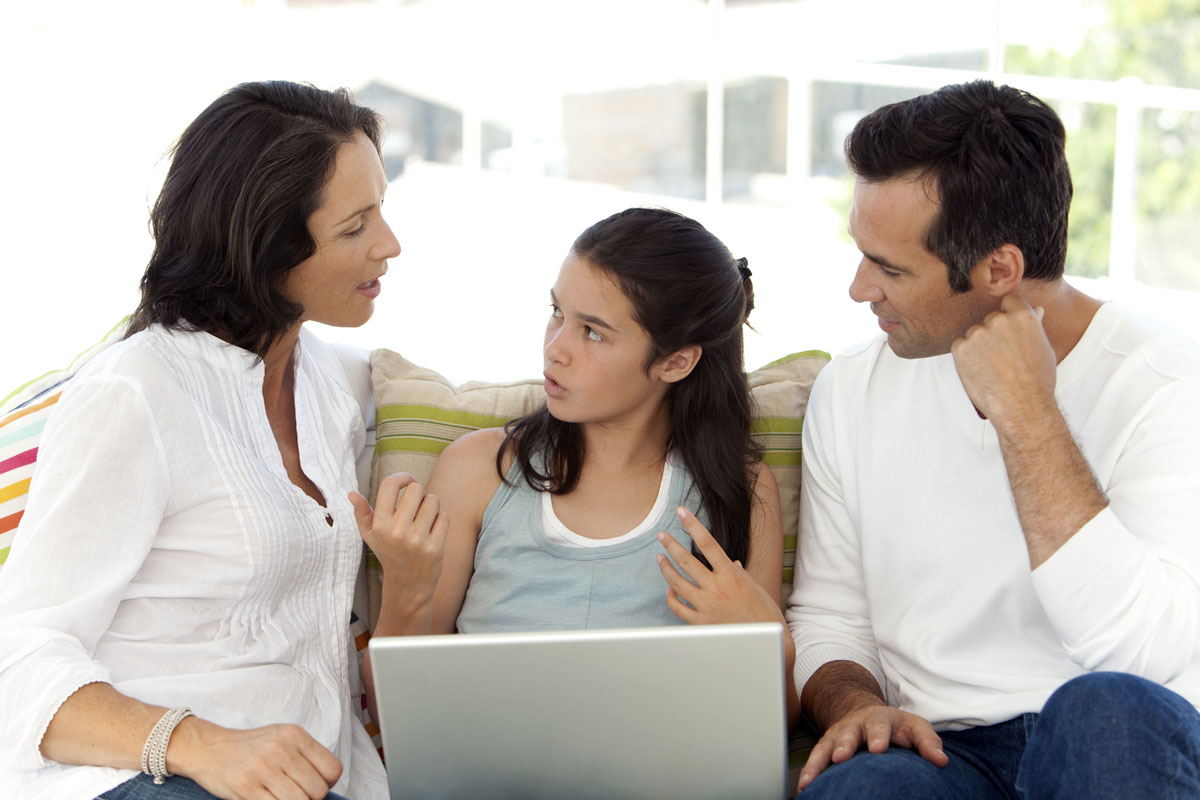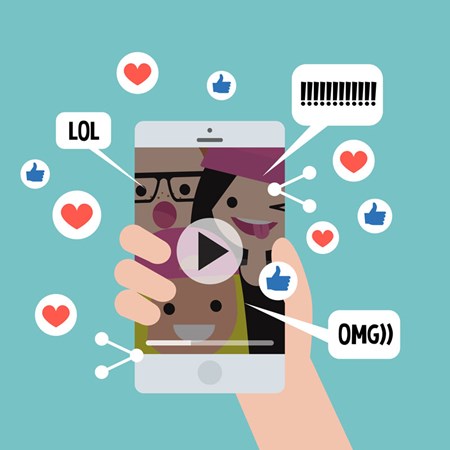
How Parents Can Use Social Media Challenges to Spark Safety Conversations with Kids
With the rise of social media, it seems fame is just a few clicks away.
Recent years have seen the rise of “challenges” that dare kids and teens to record themselves doing a task, then upload the video to an online outlet in hopes of it going viral.
The Ice Bucket Challenge, created by the ALS Association to raise awareness for amyotrophic lateral sclerosis, is an example of how viral challenges can be used for good.
However, oftentimes they do more harm, and can be downright dangerous for those who participate.

From eating a packet of laundry detergent to jumping out of a moving vehicle for a daredevil dance-off, some of the most trending challenges involve performing an outlandish stunt.
One challenge that has been making the rounds on social feeds over the past year is called “The Hot Water Challenge.”
As its name suggests, this trend involves boiling-hot water.
The challenge? Drink it, or pour it on a friend.
Since the Hot Water Challenge appeared on YouTube last year, several children have been seriously injured.
One young girl even died as a result of the injuries received from this challenge.
“There’s nothing funny about burns,” says Alissa Marchais, Trauma Program manager at Kapiolani Medical Center for Women & Children.
“Aside from obvious consequences such as severe pain and permanent disfigurement, burns can be fatal,” Marchais states. “Our skin is a protective barrier to bacteria and pathogens, so burning off this line of defense can lead to infection and death.”
The skin also keeps fluids, including blood, plasma and other vital liquids, in the body.
"When a severe burn occurs, the body’s inflammatory response causes fluids to leak out of our blood vessels, leading to dehydration, hypovolemic shock, multi-organ failure including acute kidney injury and death,” Marchais adds.
The best way to prevent something like this from happening is to be informed about trends. Talk to your kids about online challenges in general, and how such behaviors can lead to serious injury and harm to others."
“Parents need to discuss with their kids repeatedly about the possible dangers of social media trends, and have them really think before they act, and what the consequences are if they do act on it,” says Lisa Dau, a registered nurse and injury prevention coordinator at Kapiolani Medical Center.
“The best way to prevent something like this from happening is to be informed about trends, especially on social media and YouTube,” Dau advises. “Talk to your kids about online challenges in general, and how such behaviors can lead to serious injury and harm to others.”
Parents can also use these challenges to spark a bigger conversation about safety.
For example, in Hawaii, burns and scalds are one of the leading causes for a trip to the emergency department, and are among the most common injuries seen at Kapiolani.
“As a safety precaution, parents should teach kids what to do in case they are burned by hot water,” says Dau.
If you are burned, you should:
- Act quickly by removing the water or whatever is burning you.
- Take off your clothes if you can.
- Seek medical help.
To prevent a burn injury, Dau recommends the following at-home safety tips:
- Remind children to ask an adult for help near a stove or the microwave.
- Turn pot handles toward the back of the stove.
- Use the back burner rather than the front.
- Let food cool before touching it. If children are really hungry, put some ice cubes in the liquid to help it cool faster.
- Always keep hot food and drinks away from the edge of the table or counter.

Remember, adolescents’ brains are wired to seek out new experiences – it’s how they learn – so it is only natural that they will search for the next big social trend.
“Teens seek thrill and attention, and when it’s liked or shared over and over on social media, this enhances their ‘feel good’ experience,” Dau explains. “The best parents can do is warn their kids about the potential dangers of online challenges, and keep open communication with your kids.”
Dau suggests asking children and teens what challenges are popular with their peers at school.
“Ask if they have watched any challenges online, and ask them to show you the video,” Dau says. “As you are watching the video, ask what they think about it. Discuss peer pressure and explain to them the importance of taking a stand, and know when to say NO.
“The more you talk, the more you will know what is going on with your child and recognize potential dangers in their lives,” Dau says.
For more resources on safety and how to talk with your kids about online challenges, visit the following websites:
Published on: August 2, 2018




